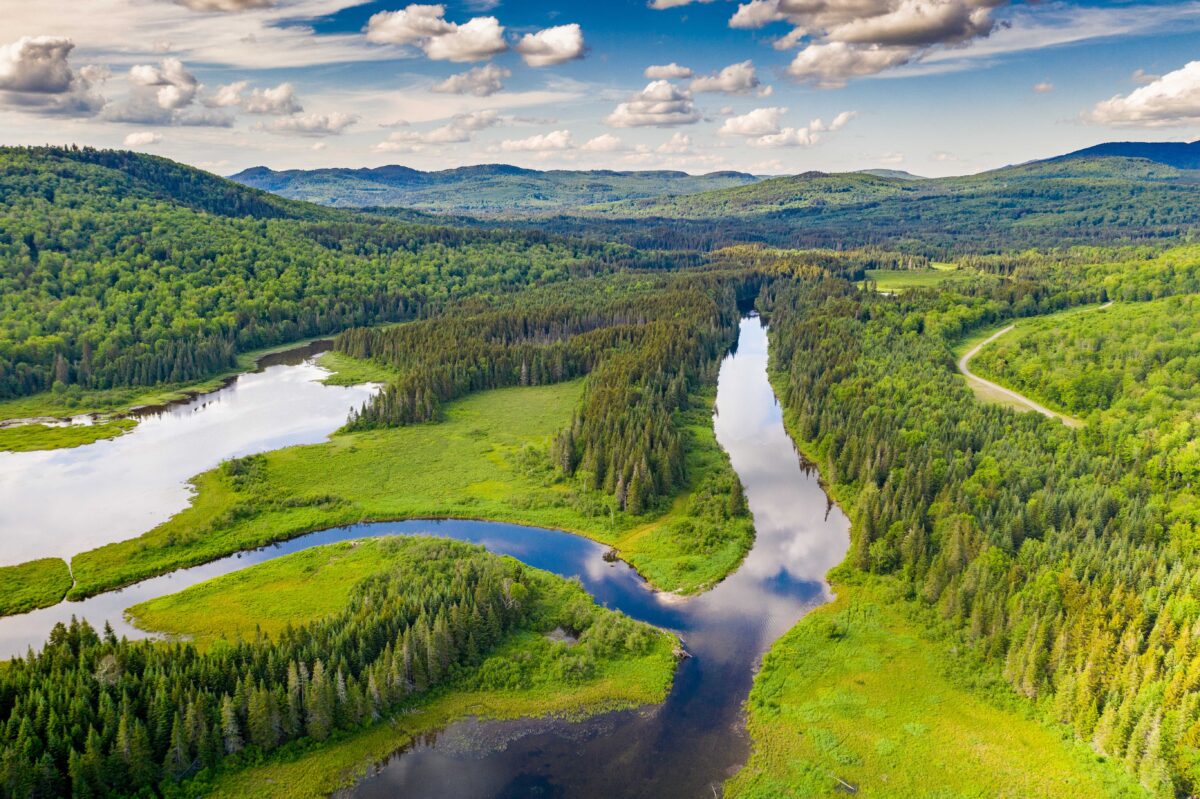Magalloway featured in Inside Climate News
By Olivia Gieger, climate contributor
The Rangeley Lakes region can often feel like a forgotten corner of Maine, far from the state’s famed coasts or cities. This western stretch is remote, rugged woodland. Forests become impassable in spring’s muddy months and cool mountain streams teem with a trout population that draws legions of recreational fishers. It’s also a part of the state where logging and timber hauls have indelibly shaped the land and livelihoods of those who live there.
Now about 78,000 acres surrounding the Rangeley Lakes may soon be linked to 500,000 acres of protected land reaching across central Maine to New Hampshire. A project announced March 18 and agreed to by four leading conservation groups and a 70-year-old timber company aims to bolster a priority spawning ground for brook trout, broaden a migration corridor for wildlife and restrict future development in the woodlands.
The plan to permanently protect lands around Maine’s Magalloway River is the brainchild of Rangeley Lakes Heritage Trust, Forest Society of Maine, Northeast Wilderness Trust, and The Nature Conservancy.
The conservation groups and Wagner Forest Management, a timber company that manages the property on behalf of its owner, Bayroot LLC, have been discussing the project since 2023. Logging will continue on the majority of the protected land, about 62,000 acres, with no-cut areas established around critical brook trout habitat. The Forest Society of Maine will hold a conservation easement on the land owned by Bayroot as part of the agreement, which is contingent on funding.
The conservation groups plan to raise $62 million, largely from private donors, by May 2026. The Rangeley Lakes Heritage and the Northeast Wilderness trusts will buy smaller parcels within the protected area as part of the deal.
“This is a project that is significant at the scale of the entire Appalachian corridor. It’s a really key gap in the Appalachian landscape in terms of lands that are conserved,” said Mark Berry, forest conservation manager for The Nature Conservancy in Maine.
Read the full article on the Inside Climate News website.
Partner Details
Rangeley Lakes Heritage Trust
Since its inception in 1991, Rangeley Lakes Heritage Trust (RLHT) has conserved over 125,000 acres in western Maine. RLHT’s mission is to sustain the ecological, economic, and social vitality of the Rangeley Region by conserving, restoring, and stewarding its lands and waters for present and future generations. RLHT works on the ground to restore habitats, build climate resiliency in the region, and conserve biodiversity in one of the most ecologically significant landscapes in North America. RLHT also supports and practices sustainable forestry and connects the community to conservation through a broad network of public-access trails. Learn more at rlht.org.
Forest Society of Maine
Forest Society of Maine, a statewide land trust established in 1984, assists landowners, families, and communities to conserve forestland across the state for sustainable forest management, recreation, wildlife habitat, and historic and cultural values. Over the past 40 years, FSM has helped conserve more than one million acres, making it the seventh largest land trust in the country by conserved acres. More information about the Forest Society of Maine can be found at www.fsmaine.org.
Northeast Wilderness Trust
Northeast Wilderness Trust is a regional land trust that focuses exclusively on protecting wilderness areas—lands permanently protected as forever wild, where natural processes direct the ebb and flow of life. With its headquarters in Vermont, staff in multiple states, and board members across the Northeast, the Wilderness Trust (www.newildernesstrust.org) protects more than 93,000 acres in New York, Vermont, New Hampshire, Maine, Massachusetts, and Connecticut.
The Nature Conservancy
The Nature Conservancy is a global conservation organization dedicated to conserving the lands and waters on which all life depends. TNC is working to make a lasting difference in 81 countries and territories and uses a collaborative approach that engages local communities, governments, tribes, the private sector, and other partners. The Appalachians are one of four current global focal areas for TNC. Co-founded in 1956 by Rachel Carson, TNC Maine has helped protect almost 2.5 million acres and currently owns and manages around 300,000 acres in the state. To learn more, visit www.nature.org/maine or follow @TNCMaine on social media.
Media contacts:
Molly Shaw
Director of Communications, Rangeley Lakes Heritage Trust
mshaw@rlht.org | 207-615-6659
Richard Knox
Director of Communications, Northeast Wilderness Trust
richard@newildernesstrust.org | 207-242-5578
